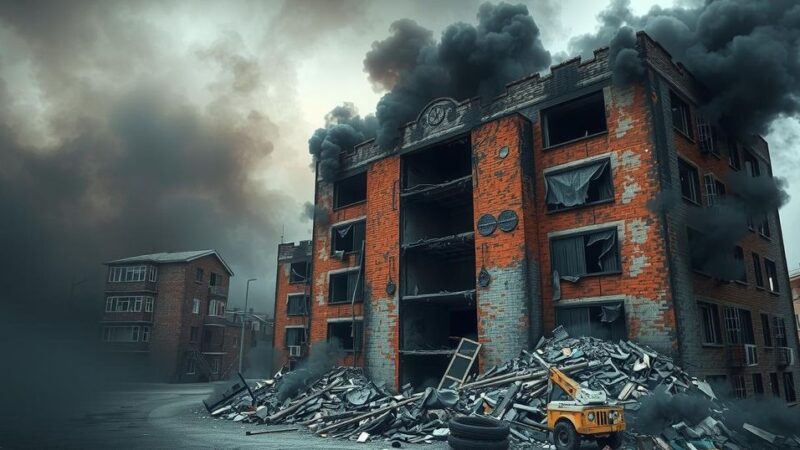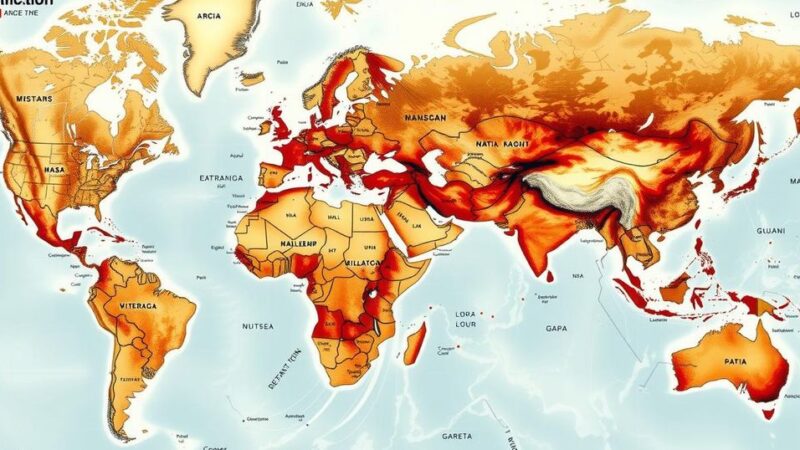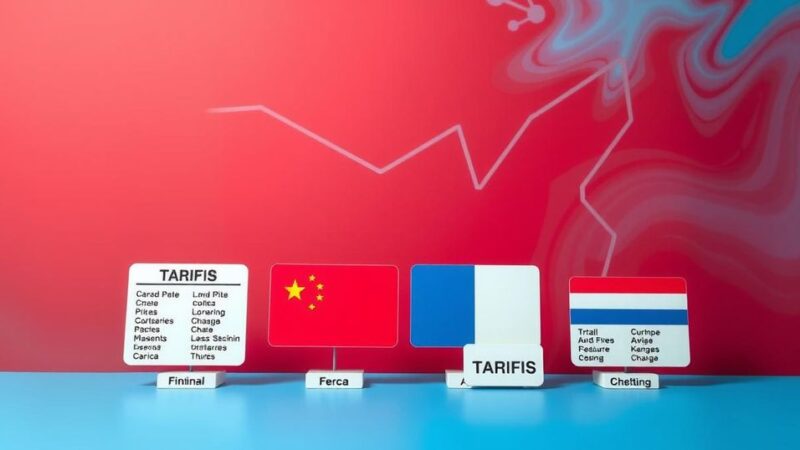More than 280 men, reportedly Romanian mercenaries, surrendered to M23 rebels in the DRC, as the government struggles to combat escalating conflict. The situation highlights ongoing instability in the region, compounded by alleged support from Rwanda for the rebels. The DRC’s reliance on foreign military contractors raises questions about the effectiveness of its defense strategy.
Reports indicate that over 280 individuals, suspected to be “Romanian mercenaries” as claimed by the Rwanda Defense Force (RDF), have surrendered to M23 rebels in the Democratic Republic of the Congo (DRC). The RDF announced their escort to Kigali following the rebels’ capture of Goma, a significant Congolese city, as detailed in a post on the social media platform X, formerly known as Twitter.
The authenticity of the claims regarding the men being Romanian mercenaries, their combat status, and their affiliation with the DRC government remains unverified by Newsweek. Attempts to obtain comments from the Romanian Ministry of Foreign Affairs, RDF, and the DRC Ministry of Defense were made but fell outside of regular business hours.
The alleged involvement of Romanian mercenaries indicates a recognition by the DRC government of its inability to combat the M23 rebels independently, highlighting a precursor to potential conflict. The M23’s strategic gains, including the seizure of Goma, signify possible rising violence and enduring regional instability amid escalating tensions between the DRC and Rwanda.
The RDF asserted that the alleged Romanian mercenaries fought alongside the Armed Forces of the Democratic Republic of the Congo (FARDC) in eastern DRC. Initially recruited to support the DRC’s defense capacity at its borders adjacent to Rwanda, these mercenaries will return to their home country after their arrival in Kigali.
The Romanian Ministry of Foreign Affairs confirmed the presence of Romanian nationals in the DRC, characterizing them as civilians and “private employees of the DRC government, on an army training mission,” as reported by Romania Journal. These individuals were reportedly a part of a private army led by Romanian military professional Horațiu Potra, contracted to train DRC military forces amid escalating conflict.
Over the last two years, the DRC has increasingly outsourced military services to private military companies to counter M23’s advancing rebellion. Recent civil unrest in the West African nation has arisen, with protests targeting foreign embassies amid the M23 offensive, leading to violent demonstrations that included looting and arson.
The United Nations and the United States have alleged that M23’s actions, particularly the assault on Goma, are supported by Rwanda, allegations that Rwanda categorically denies. Rwanda claims its military presence and missile systems in Eastern Congo are justified by security concerns.
The M23 rebels declared control over Goma on January 27, prompting the Congolese government to label the assault on the capital as a “declaration of war.”
Various individuals have commented on the situation via X. Journalist Mélanie Gouby remarked on the mercenaries’ departure, while Arthur Asiimwe from the Rwanda Embassy articulated the necessity of Rwanda’s defensive measures. Furthermore, Andrew M. Mwenda emphasized the historic reliance of DRC on foreign mercenaries to suppress local dissent and the current challenges faced by the government in addressing such rebellion.
In light of the recent developments following the M23 takeover of Goma, an emergency summit of the East African Community, which includes both Congo and Rwanda, is slated for Wednesday evening.
The situation in the Democratic Republic of the Congo has escalated with the surrender of alleged Romanian mercenaries to M23 rebels, revealing the DRC government’s struggle to manage escalating conflict independently. The involvement of foreign mercenaries underscores the dire military context as tensions with Rwanda rise, calling for urgent political solutions to navigate the crisis.
Original Source: www.newsweek.com






